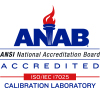 Posted on
Posted on

Carburization is a process that transforms low carbon steel into high carbon steel, creating strong and durable products required for industries across the board including aerospace, automotive, and manufacturing. The thermochemical process introduces steel to a carbon-dense environment, via liquid or gaseous hydrocarbons, with the product outcome dependent on temperature and hold time.
The ability to monitor and control the temperature throughout the process is essential for ensuring optimum product performance. The temperature and hold time of the heat treatment is based on the product requirements for the surface and core.
For example, the higher the carburizing temperature and longer the hold time, the harder the product will become. Following carburization, products are generally quenched then tempered at lower temperatures to increase surface hardness and desired core strength.
Carburizing temperature varies from 850 °C to 950 °C (1562 °F to 1742 °F) depending on the materials used and the method of carburization applied (solid, liquid, or gas). It’s critical to monitor and control temperatures throughout the entire process. From heating the furnace to carburizing, quenching, tempering, and cooling, each step requires precision and uniformity to achieve the desired outcome.
MadgeTech manufacturers data logging solutions designed to provide environmental profiles of industrial applications. For heat treatment processes, the MadgeTech X-Series and Titan S8 allow users to measure and record extreme temperatures through one or multiple thermocouple inputs.
To find the right data logging solution for your unique application, call us at (603) 456-2011 or email [email protected].






